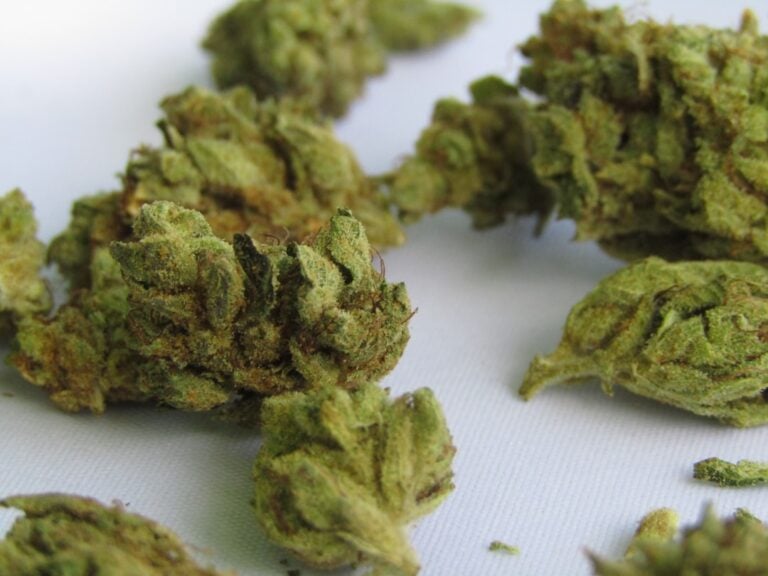Everything You Need to Know About What Happens When You Sleep High
Understanding the Effects of Sleeping High on Marijuana
Have you ever wondered what happens when you sleep high after consuming marijuana? Whether through smoking or edibles, the experience can significantly shape your night’s rest. Understanding the effects of sleeping high can illuminate how marijuana impacts both short-term relaxation and long-term health.
Immediate Effects of Sleeping High
When you drift off under the influence of THC (tetrahydrocannabinol), the active compound in marijuana, several immediate effects can manifest:
1. Euphoria and Relaxation: Many users report feeling an intense sense of euphoria, making it easier to fall asleep initially. This calming sensation brings relief from daily stressors.
2. Altered Perception: THC often distorts sensory perceptions, causing time to feel elongated or contracted. Your spatial awareness may also be impacted during sleep.
3. Increased Heart Rate: A common physiological response to smoking marijuana is tachycardia, or elevated heart rate, which might concern individuals with pre-existing heart conditions.
4. Dry Mouth and Red Eyes: The infamous “cottonmouth” leads to discomfort in the mouth and throat, while redness may occur in your eyes.
5. Impaired Coordination and Memory: The influence of THC can result in decreased motor skills, making tasks requiring precision challenging. Additionally, short-term memory may suffer, affecting your recall of dreams.
Long-Term Effects of Sleeping High
While the immediate impacts can feel manageable, the long-term consequences of sleeping high warrant careful examination:
– Respiratory Issues: Regularly inhaling marijuana smoke can result in chronic bronchitis and other respiratory complications.
– Cognitive Impairments: Ongoing use may hinder memory formation, attention span, and cognitive agility.
– Mental Health Risks: There’s a noted link between long-term marijuana use and increased chances of mental health disorders, such as depression and anxiety.
– Dependency and Withdrawal: For many, habitual marijuana use for sleep leads to dependency, accompanied by withdrawal symptoms when discontinuing use.
– Altered Sleep Patterns and REM Suppression: THC can disrupt your sleep architecture, particularly REM sleep, which is essential for processing emotions and memories. Reduced REM can culminate in less restorative sleep.
Understanding Sleeping High: The Cognitive Impact
Studies illuminate that the cognitive ramifications of long-term marijuana use can affect daily functioning:
– Memory Issues: Forming new memories may become more difficult, complicating both learning and information recall.
– Diminished Attention: Users may struggle to maintain focus on tasks and have an impaired ability to manage distractions.
– Slower Processing: Reaction times will likely decrease, potentially impacting decision-making abilities.
Awareness of these effects is paramount in making educated choices about using marijuana as a sleep aid.
Benefits and Risks of Using Marijuana for Sleep
Turning to marijuana for sleep can be a double-edged sword, offering both advantages and drawbacks:
Benefits
– Relaxation: Many find strains high in THC conducive to unwinding after stressful days, providing a soothing path to sleep.
– Anxiety Reduction: Some users note significant decreases in anxiety levels, facilitating easier transitions into sleep.
– Pain Relief: For those grappling with chronic pain, marijuana can furnish a viable option for achieving restful nights.
Risks
– Sleep Quality Impairment: Although marijuana may expedite falling asleep, it can interfere with sleep quality. Research suggests a decrease in REM sleep, pivotal for cognitive functions.
– Next-Day Drowsiness: Users frequently report waking up feeling groggy or with a “hangover,” impacting daily functions and alertness.
– Dependency and Mental Health Issues: Long-term use can instigate dependency, with about 30% of users developing a disorder, elevating risks of withdrawal symptoms and mental health disturbances.
How Different Strains Affect Sleep Quality
Marijuana comes in various strains, each with unique effects on sleep:
Indica Strains
Indica strains are renowned for their sedative effects, often high in a terpene called myrcene, which enhances relaxation. Users typically experience:
– Deep Relaxation: The “body high” offered by indicas can help users unwind after hectic days.
– Pain Relief: Many have found these strains effective against chronic pain, aiding in sleep time.
– Insomnia Solutions: Strains like Northern Lights and Granddaddy Purple are frequently recommended for insomnia sufferers.
Sativa Strains
In contrast, sativa strains are known for their uplifting and energizing qualities, ideal for daytime use but unsuitable for bedtime. They may:
– Stimulate Creativity: Some users leverage sativas for brainstorming or artistic tasks but should avoid using them close to bedtime.
– Worsen Sleep Disorders: Their stimulating effects can hinder the ability to fall asleep, provoking the opposite of the intended results.
Hybrid Strains
Hybrids combine both indica and sativa genetics, offering a balanced approach. Users can choose strains tailored to their specific needs, whether they require relaxation or mild stimulation.
The Role of CBD in Promoting Sleep
Unlike THC, CBD (cannabidiol) does not produce a high but has considerable effects on sleep:
1. Hormonal Regulation: CBD may reduce cortisol, a stress hormone likely to keep you awake. Lower cortisol levels are associated with improved sleep quality.
2. Anxiety Reduction: Many report enhanced sleep due to decreased anxiety levels attributed to CBD’s interaction with brain receptors.
3. Deep Sleep Promotion: Research suggests CBD can augment time spent in deep sleep stages, essential for physical recovery and rejuvenation.
Conclusion
Understanding what happens when you sleep high is crucial for making informed decisions about marijuana use. While it can facilitate falling asleep faster, the potential disruption of REM sleep, cognitive effects, and the risk of dependency are significant factors to consider. Always consult healthcare professionals for guidance tailored to your circumstances, ensuring that you strike a balance between short-term relief and long-term well-being.
At Yawnder, we strive to empower you with knowledge and tools for optimal sleep. By exploring different strains, acknowledging the benefits and risks associated with marijuana use, and recognizing how to incorporate CBD, you can better manage your sleep quality and overall health. Prioritizing your long-term wellness should always be at the forefront of your sleep strategies.













